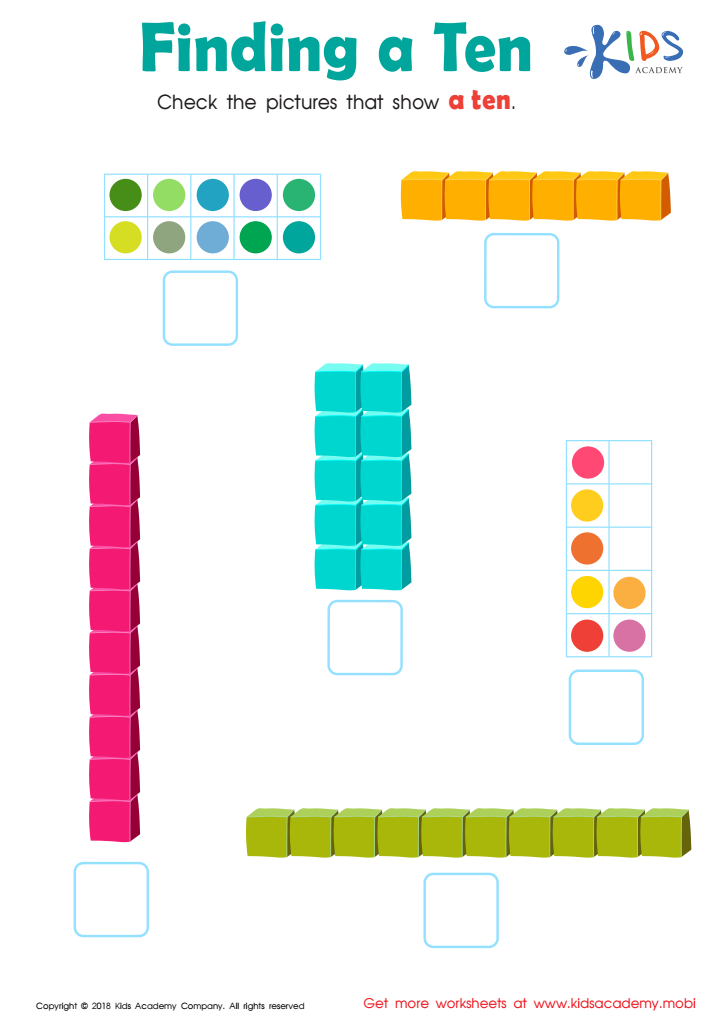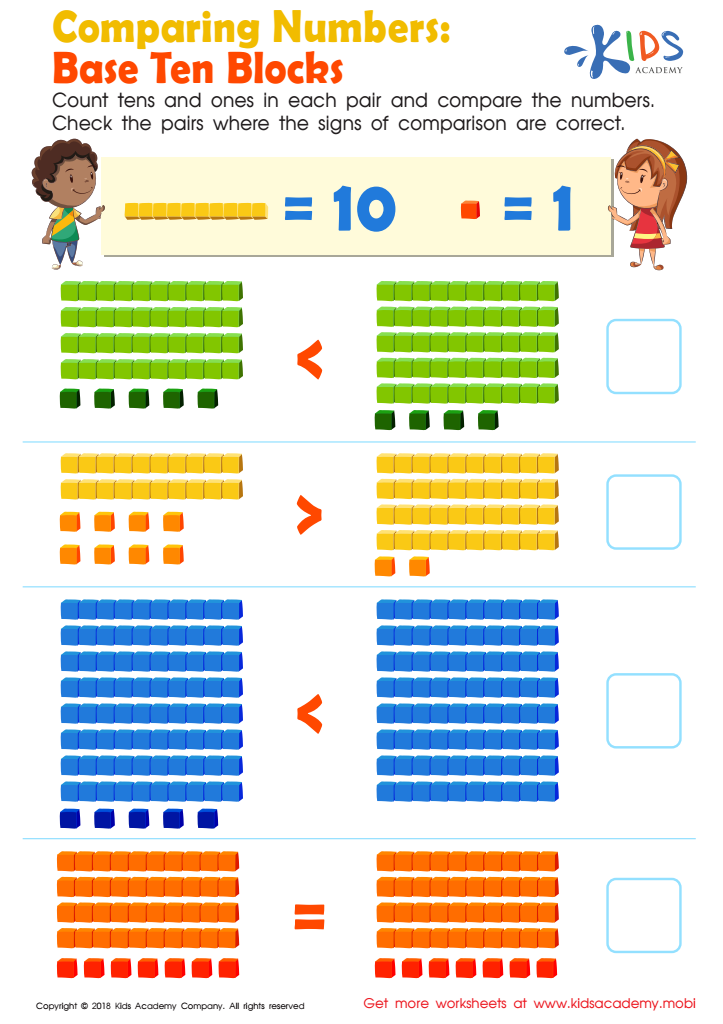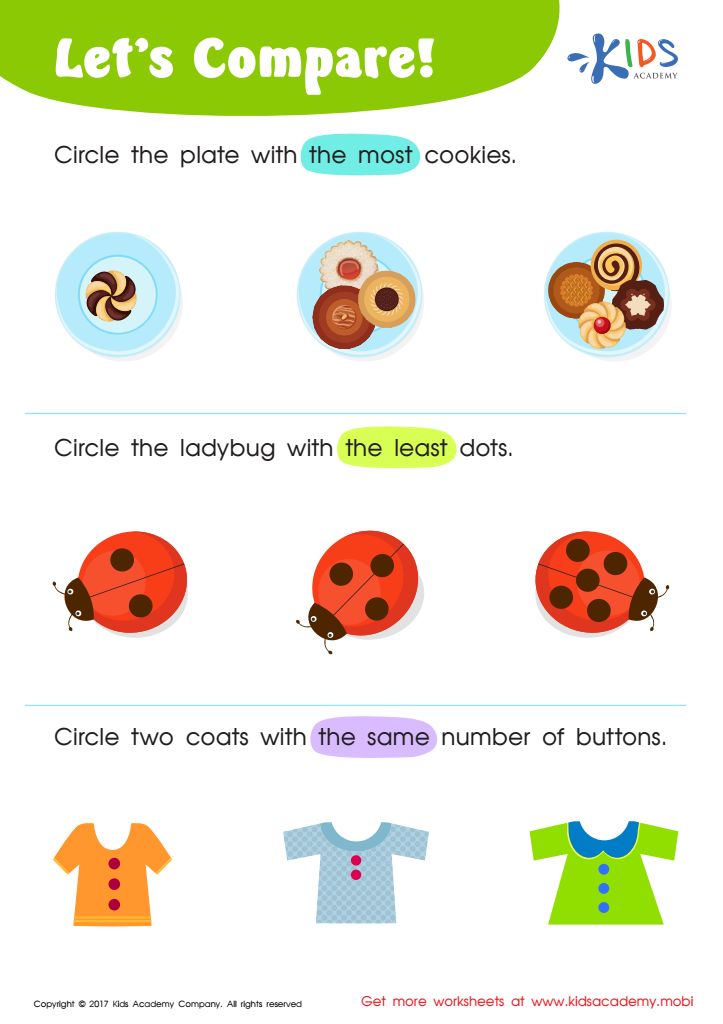Developing math skills Normal Numbers Worksheets for Ages 4-6
3 filtered results
-
From - To
Enhance your child's early math skills with our engaging Normal Numbers Worksheets designed specifically for ages 4-6. These worksheets offer a fun and interactive way for young learners to grasp essential math concepts. Through exciting activities, children will explore number recognition, counting, and basic arithmetic, fostering a strong mathematical foundation. Each worksheet is crafted to encourage critical thinking and problem-solving while building confidence in math. With colorful illustrations and age-appropriate challenges, your little ones will love practicing their math skills. Discover the joy of learning numbers today and watch your child's mathematical abilities flourish! Explore our resources now!


Finding a Ten Worksheet


Comparing Numbers: Base Ten Blocks Worksheet


Matching: Classifying Toys by Size Worksheet
Developing math skills, particularly with normal numbers for children aged 4-6, is critical for early childhood education. During these formative years, children are curious and eager to learn, making it the ideal time to introduce foundational math concepts. Mastering numbers helps build cognitive skills such as problem-solving and logical thinking. It also fosters confidence, as children learn to recognize and manipulate numbers, laying the groundwork for more complex mathematical concepts in later years.
Additionally, early math skills are linked to overall academic success. Research suggests that children who develop a strong understanding of numbers and basic operations in early childhood are more likely to excel in mathematics in primary school and beyond. Furthermore, these skills extend to real-life applications, helping children make sense of everyday situations—whether counting toys, measuring ingredients in cooking, or understanding time.
Parents and teachers play a vital role in creating a stimulating environment that encourages exploration and engagement with math. By providing resources and opportunities for number recognition and manipulation through play, they can nurture a passion for learning, ensuring children feel secure and interested in embracing math as a lifelong skill. Hence, developing math skills in young children is an essential investment in their future.

 Assign to My Students
Assign to My Students
















